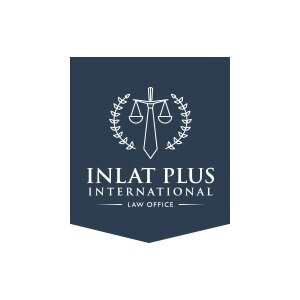Best Probate Lawyers in Riga
Share your needs with us, get contacted by law firms.
Free. Takes 2 min.
List of the best lawyers in Riga, Latvia
About Probate Law in Riga, Latvia
Probate law in Riga, Latvia, involves the legal processes governing the distribution of a deceased person's estate. This area of law includes the handling of wills, succession processes without a will, and the management of deceased estates. In Latvia, probate procedures are typically conducted through the courts, where even private agreements among heirs may require judicial approval. Understanding the framework of probate law is crucial for anyone dealing with inheritance matters in Riga.
Why You May Need a Lawyer
While handling probate independently is possible, there are several situations where a lawyer's expertise can be indispensable. Common scenarios include complex estate cases, disputes among heirs, unclear or contested wills, tax implications connected to inheritance, and cross-border issues involving foreign assets or residents. Additionally, legal representation can provide clarity, expedite the process, and ensure compliance with local laws, thus minimizing the risk of errors or disputes.
Local Laws Overview
In Latvia, succession law is primarily governed by the Civil Law of Latvia, which outlines the procedures for both testate (with a will) and intestate (without a will) succession. In cases where there is no will, Latvian law dictates a specific order of inheritance involving the spouse, descendants, and other close relatives. The law requires that the heirs conduct an inventory of the estate for legal and tax purposes. Additionally, inheritance is subject to Latvian inheritance tax laws, with various exemptions and rates depending on the relationship between the deceased and the heir.
Frequently Asked Questions
What is probate, and when is it necessary in Riga?
Probate is the formal legal process of administering the estate of a deceased person. It involves validating the will, if one exists, resolving any claims, and distributing the estate. In Riga, probate is typically necessary to legally transfer ownership of the deceased's assets.
Do all assets go through probate in Latvia?
Not all assets need to go through probate. Assets that are jointly owned or are owned with rights of survivorship may pass directly to the surviving owner. Additionally, life insurance policies and retirement accounts with designated beneficiaries usually bypass probate.
How long does the probate process take in Riga?
The duration of the probate process in Riga can vary widely depending on the complexity of the estate, the clarity of the will, and whether any disputes arise. Typically, probate could take several months to over a year.
Can I contest a will in Latvia, and how?
Yes, a will can be contested in Latvia if there are grounds such as lack of capacity, undue influence, or improper execution. Contesting a will involves legal proceedings, and it is advisable to consult with a lawyer for guidance on how to proceed.
Who is responsible for managing the estate during probate?
The individual named as the executor in the will is generally responsible for managing the estate. If there is no will, the court may appoint an administrator to perform this role.
Are there taxes on inheritance in Riga?
Inheritance tax laws in Latvia apply to the transfer of estates, but various exemptions and rates may affect the taxes owed. Consulting a legal or tax professional can provide specific guidance based on the details of the estate.
What happens if there is no will?
If there is no will, Latvian succession laws determine the order of beneficiaries and shares of the inheritance. Generally, the estate is divided among the closest relatives in a predetermined order.
Can foreigners inherit property in Latvia?
Yes, foreigners can inherit property in Latvia. However, specific legal and tax implications might apply, particularly in cross-border cases, which could necessitate specialized legal advice.
How can I ensure my own will is legally valid?
To ensure a will is legally valid in Latvia, it should be made voluntarily, with testamentary capacity, and follow formal requirements, such as being in writing and witnessed. Legal advice can help in drafting a compliant will.
Is it possible to expedite the probate process?
While probate inherently takes time, certain actions, such as ensuring all documents are complete and filed promptly and solving disputes amicably, can help expedite the process. Professional legal assistance can also contribute to a smoother procedure.
Additional Resources
Several resources can assist with probate-related inquiries and legal guidance in Latvia:
- The Ministry of Justice of the Republic of Latvia
- The Latvian Chamber of Sworn Advocates for legal assistance
- Local notaries who can provide advice on wills and estate matters
- The Riga District Court for handling probate cases
Next Steps
If you require legal assistance in probate matters, consider the following steps:
- Gather all relevant documents related to the estate, such as wills, financial statements, and property deeds.
- Consult with a legal professional specializing in Latvian probate law for tailored advice.
- Visit a notary or a law firm in Riga for more specific guidance based on your circumstances.
- Engage a lawyer to assist in court proceedings or estate administration if necessary.
Taking these steps can help you navigate the complexities of probate in Riga, ensuring a clear, efficient, and compliant process.
Lawzana helps you find the best lawyers and law firms in Riga through a curated and pre-screened list of qualified legal professionals. Our platform offers rankings and detailed profiles of attorneys and law firms, allowing you to compare based on practice areas, including Probate, experience, and client feedback.
Each profile includes a description of the firm's areas of practice, client reviews, team members and partners, year of establishment, spoken languages, office locations, contact information, social media presence, and any published articles or resources. Most firms on our platform speak English and are experienced in both local and international legal matters.
Get a quote from top-rated law firms in Riga, Latvia — quickly, securely, and without unnecessary hassle.
Disclaimer:
The information provided on this page is for general informational purposes only and does not constitute legal advice. While we strive to ensure the accuracy and relevance of the content, legal information may change over time, and interpretations of the law can vary. You should always consult with a qualified legal professional for advice specific to your situation.
We disclaim all liability for actions taken or not taken based on the content of this page. If you believe any information is incorrect or outdated, please contact us, and we will review and update it where appropriate.











